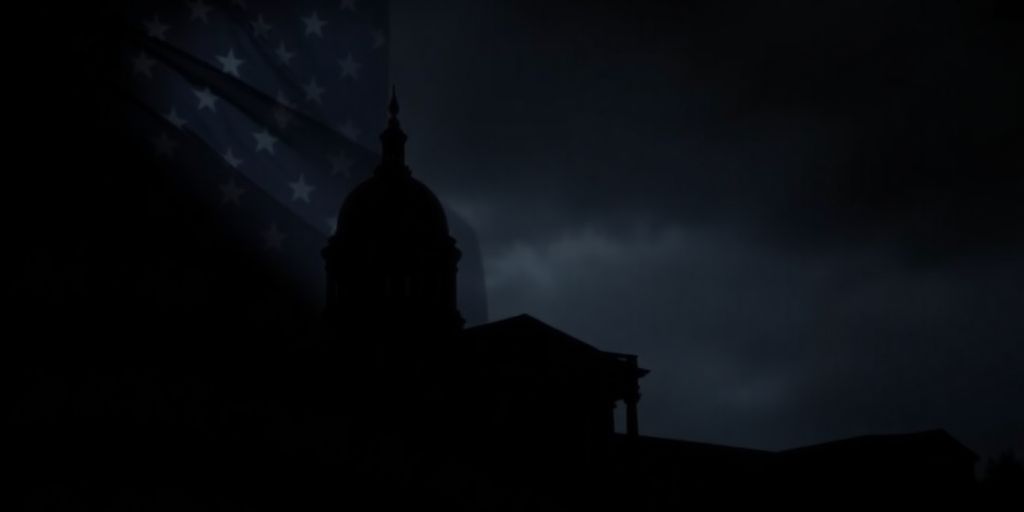Elections
Rising Authoritarianism Concerns as U.S. Government Implements New Policies

The U.S. government is facing increasing scrutiny over its recent policy changes, which many critics argue reflect authoritarian tendencies. As debates intensify, political scientists and citizens alike are voicing concerns about the implications for democracy and civil liberties in the nation.
Key Takeaways
- Recent policy changes have sparked fears of authoritarianism.
- Political scientists warn of potential threats to democracy.
- Public opinion is divided on the government’s direction.
Overview of Recent Policy Changes
In the past few months, the U.S. government has introduced several policies that have raised eyebrows among political analysts and civil rights advocates. These changes include:
- Increased Surveillance: New measures have expanded government surveillance capabilities, allowing for greater monitoring of citizens’ activities.
- Restrictions on Free Speech: Certain regulations have been proposed that could limit free speech, particularly in online platforms.
- Crackdown on Protests: Law enforcement agencies have been given more power to disperse protests, raising concerns about the right to assemble.
These policies have led to a growing perception that the government is moving towards authoritarianism, prompting widespread debate across the political spectrum.
Public Reaction and Concerns
Public opinion on these changes is sharply divided. Some citizens express support for the policies, citing national security and public safety as primary concerns. Others, however, fear that these measures undermine the foundational principles of democracy. Key points of contention include:
- Civil Liberties: Many argue that increased surveillance and restrictions on speech infringe upon individual rights.
- Trust in Government: A significant portion of the population is losing trust in government institutions, fearing that power is being concentrated in the hands of a few.
- Political Polarization: The issue has further polarized an already divided electorate, with many viewing the policies through a partisan lens.
Expert Opinions
Political scientists and experts have weighed in on the implications of these policy changes. Some of the key insights include:
- Threat to Democracy: Experts warn that the erosion of civil liberties could lead to a slippery slope towards authoritarian governance.
- Historical Context: Comparisons have been drawn to historical instances where governments have curtailed freedoms under the guise of security.
- Need for Vigilance: Scholars emphasize the importance of public vigilance and advocacy to protect democratic institutions.
The Path Forward
As the debate continues, several actions are being proposed to address concerns about authoritarianism:
- Public Advocacy: Citizens are encouraged to engage in advocacy efforts to protect civil liberties.
- Legislative Oversight: Calls for greater oversight of government actions are growing, with demands for transparency and accountability.
- Community Engagement: Grassroots movements are emerging to mobilize citizens around issues of democracy and rights.
The future of democracy in the U.S. may hinge on how these concerns are addressed in the coming months. As citizens and leaders navigate this complex landscape, the balance between security and freedom remains a critical issue for the nation.
Conclusion
The recent policy changes by the U.S. government have ignited a crucial conversation about the state of democracy and the potential rise of authoritarianism. As public opinion continues to evolve, it is essential for citizens to remain informed and engaged in the democratic process to safeguard their rights and freedoms.
-

 Business6 days ago
Business6 days agoS&P 500 Soars in Best May in Decades Amid Tariff Relief and Nvidia’s Surge
-

 Immigration6 days ago
Immigration6 days agoTrump’s Immigration Crackdown: Legal Battles and Policy Shifts
-

 Business6 days ago
Business6 days agoUS Stock Market Soars in May Amidst Tariff Tensions and Inflation Worries
-

 Government6 days ago
Government6 days agoTrump Administration’s Government Reshaping Efforts Face Criticism and Legal Battles
-

 Business6 days ago
Business6 days agoTrump’s Tariffs: A Global Economic Reckoning
-

 Foreign Policy3 days ago
Foreign Policy3 days agoInside Schedule F: Will Trump’s Federal Workforce Shake-Up Undermine Democracy?
-

 Press Release3 days ago
Press Release3 days agoIn2space Launches Campaign to Make Space Travel Accessible for All











